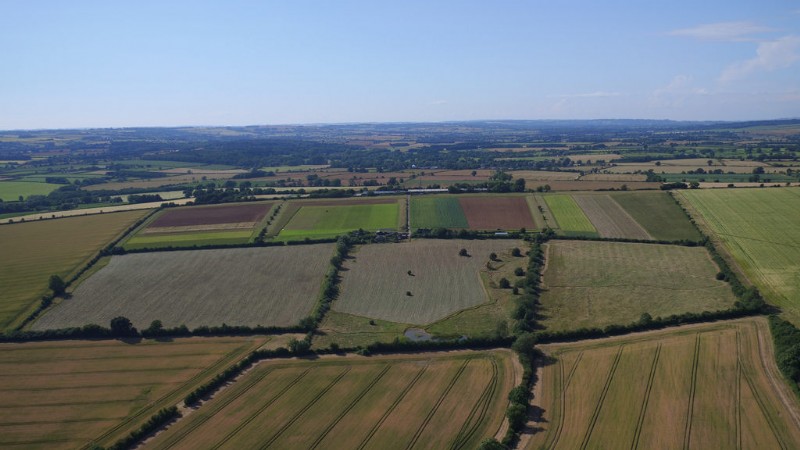
We were delighted to help with the planting of a pair of rare Black Poplar trees, Britain’s most threatened native timber tree, near the flood alleviation works at Honeydale Farm this weekend.
They arrived as part of the The Black Poplar Planting Project which commemorates the centenary of WWI, while also working to ensure the long-term survival of Britain’s native black poplar trees.
Between 2014 - 2018, the aim of the Black Poplar Planting Project, organised by the Farming & Wildlife Advisory Group SW, a registered charity representing the region's farmers and landowners in the delivery of wildlife conservation, is to provide 100 black poplar saplings to community spaces. These will be supplied in pairs, 1 male and 1 female, of genetically rare native Black Poplars.
Black Poplars have a striking shape and colour and were a common sight during the late 19th and early 20th centuries, when soldiers of the Great War would have been growing up. The Black Poplars were utilised for timber for thousands of years, prized for their soft, white, shock absorbing wood. Commonly used for the handles of tools, axles of carts and even the butts of rifles, these trees were a common feature of Gloucestershire’s farmed landscape. They then fell out of favour in the 1850’s when more productive hybrids became available. This, coupled with the drainage of wetland areas, has caused dramatic population declines with the result that the black poplar is now Britain’s most threatened native timber tree.
These rare trees are now largely absent from our landscape and unknown to younger generations. This is why Gloucestershire FWAG feels this project is a fitting tribute to the soldiers that fell in the Great War, one which will serve as a long-term reminder for generations to come and reinstate a feature of our historic landscape.
The project is planting Black Poplar in pairs to help preserve the UK’s genetic stock; the trees can be grown from cuttings very easily in the same way as willows; by simply placing a stick in the ground it will most likely grow. However, growing them from seed is far more difficult. Firstly, both male and female trees are needed and the fertilised seed needs to fall on bare, wet ground and lay undisturbed until the following June when it will hopefully germinate. Due to these difficulties, for hundreds of years black poplars were simply cloned (planted from cuttings), with the result that the UK population has very limited genetic diversity. On top of this male trees were favoured because the females produce a large quantity of fluffy seed which was seen as a nuisance! This has left us with very few female trees and even fewer genetically individual female trees.

Fully grown Black Polar (image courtesy of FWAGSW)
To ensure the trees planted by this project are as genetically diverse as possible, the project is working closely with the UK Black Poplar Clone Bank, as well as with Liz and Bob Taylor of Gloucestershire's Park Farm Nurseries, who have kindly donated 100 trees.





